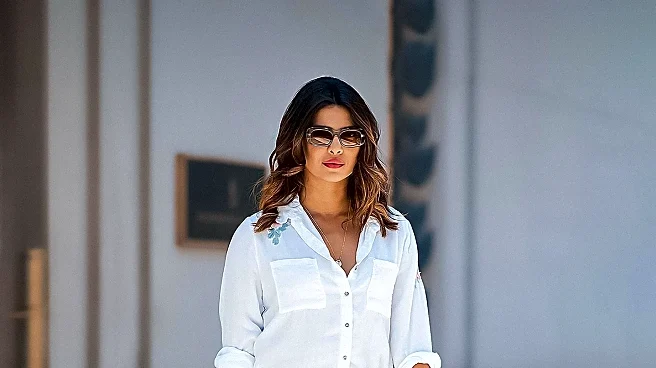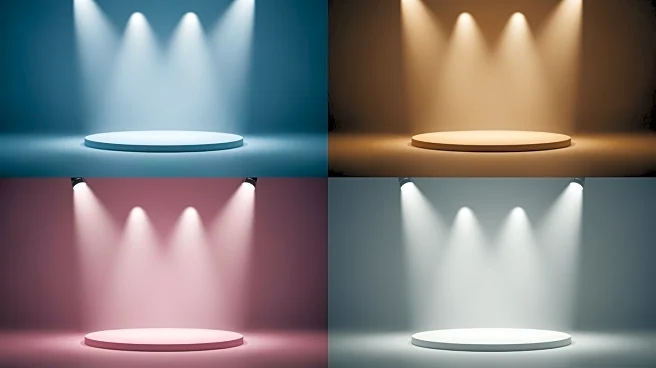What's Happening?
The fashion industry is under scrutiny for its minimal representation of plus-size models during major fashion weeks. Despite the body positivity movement, only 0.8% of looks at recent fashion shows were plus-size, a significant drop from previous years. This decline comes at a time when the global plus-size clothing market is booming, with projections indicating growth from USD 125 billion in 2025 to USD 202.4 billion by 2034. Social media platforms have become a crucial space for plus-size influencers to promote body positivity, as traditional fashion media continues to fall short in representation.
Why It's Important?
The lack of representation in the fashion industry highlights a disconnect between market potential and industry practices. The plus-size clothing market is expanding rapidly, driven by body positivity and inclusivity movements. However, fashion weeks continue to prioritize straight-size models, missing out on the economic benefits of embracing diverse body types. This exclusion not only affects the industry's financial prospects but also perpetuates societal standards that marginalize larger bodies. The growing influence of social media in promoting body positivity suggests a shift in where representation is most impactful.
What's Next?
Fashion brands may face increasing pressure to diversify their model representation as the plus-size market continues to grow. Retailers like ASOS and H&M are already expanding their plus-size ranges, indicating a potential shift in industry practices. The role of social media influencers in driving body positivity could lead to more campaigns focused on inclusivity. As consumer demand for diverse representation rises, fashion weeks might need to adapt to remain relevant and financially viable.
Beyond the Headlines
The issue of representation extends beyond body size to encompass intersectionality, where race, gender, and other identity markers interact. The fashion industry's failure to address these complexities perpetuates systemic prejudice. Positive media representation can boost self-esteem, particularly for marginalized groups, highlighting the importance of diverse portrayals in all forms of media. The ongoing struggle for representation underscores the revolutionary nature of seeing diverse bodies in public spaces.











